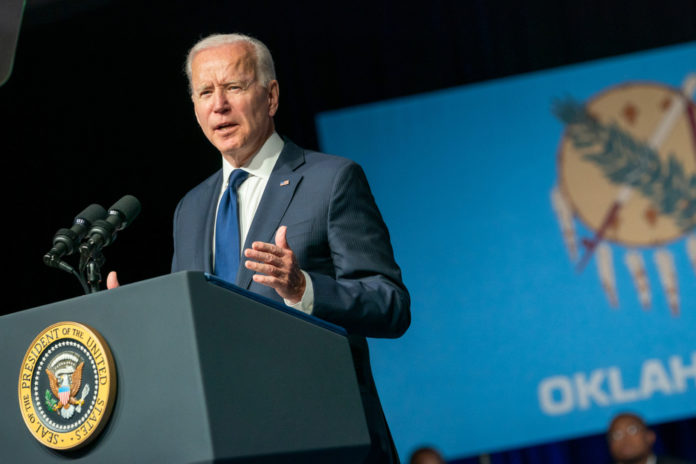President Joe Biden’s choice to withdraw all U.S. forces from Afghanistan is an indefensible and unnecessary military blunder.
Regardless, the unwise decision to abandon Afghanistan rather than allow a minuscule contingent — about 10% the size of our footprint in Germany, Japan, or Korea — to continue train-and-equip missions is a done deal and a human tragedy.
A Taliban reclamation project is underway, and despite what Biden claims, they’re working with Al-Qaeda. Expect dead schoolgirls, a strategic base bequeathed to our Chinese and Russian adversaries, an increasingly unsafe homeland, and effective Taliban control of Afghanistan by late 2022.
We can, however, salvage something from this catastrophic error.
Over the last 20 years, thousands of Afghans worked with U.S. and NATO forces as interpreters, advisers, and more. They did so, knowing this work placed their lives at risk. The Taliban also knows them, and hundreds of interpreters have been assassinated over the years.
More than a dozen years ago, we created a Special Immigrant Visa (SIV) program to expedite asylum for these folks. Unfortunately, the program has been a bureaucratic disaster.
In 2009, there were 1,500 slots created for asylum-seekers, yet only three were granted. There are nearly 19,000 people currently awaiting an SIV. Vetting and applications are supposed to take nine months, but the processing period is now nearly three years long.
Vetting is never easy. There is an intensive application process interpreters must navigate. And that’s fine. The task to resettle families should be complex and thorough, since we don’t want to import terrorist sleepers.
But even translators who’ve killed Taliban soldiers on the battlefield have been denied visas or remain in bureaucratic purgatory.
“These interpreters risk their lives while serving beside U.S. troops, so we should honor our commitment to them,” a retired U.S. Naval officer told Alpha News. “I’ve never heard anyone say otherwise, but no administration has been willing to risk the political fallout that would follow if even one of them turned out to be dangerous.”
Republicans and Democrats — as well as left and right-leaning media — agree we need to fix this. There’s a bipartisan effort to help the local people who fought with us. But time is running out, thanks in part to Biden’s irresponsible pullout.
Politico reported last week, “The latest criticism reflects the sense on Capitol Hill that the Biden administration is not doing enough to safeguard thousands of Afghan citizens who helped U.S. and NATO forces.”
The administration has only issued an executive order back in February calling for a review of SIV programs to be carried out within six months.
Last month, Sens. Joni Ernst and Jeanne Shaheen sent a bipartisan letter urging the administration to reevaluate the program. They recommended speeding up the visa-granting process and increasing the number of visas allotted. Reps. Earl Blumenauer and Adam Kinzinger introduced a bill in early June to allocate an additional 4,000 visas for Afghans.
But neither in briefings nor in national addresses has Biden directly mentioned helping asylum seekers. Is that because it would acknowledge that our withdrawal could be a dangerous move?
The anti-military crowd loves to gripe about “blood on our hands.” Leaving Iraq did so, and Afghanistan will too. Betraying these brave people is immoral. If Great Britain can accelerate the relocation process, so can the United States.
A.J. Kaufman
A.J. Kaufman is an Alpha News columnist. His work has appeared in the Baltimore Sun, Florida Sun-Sentinel, Indianapolis Star, Israel National News, Orange County Register, St. Cloud Times, Star-Tribune, and across AIM Media Midwest and the Internet. Kaufman previously worked as a school teacher and military historian.

















